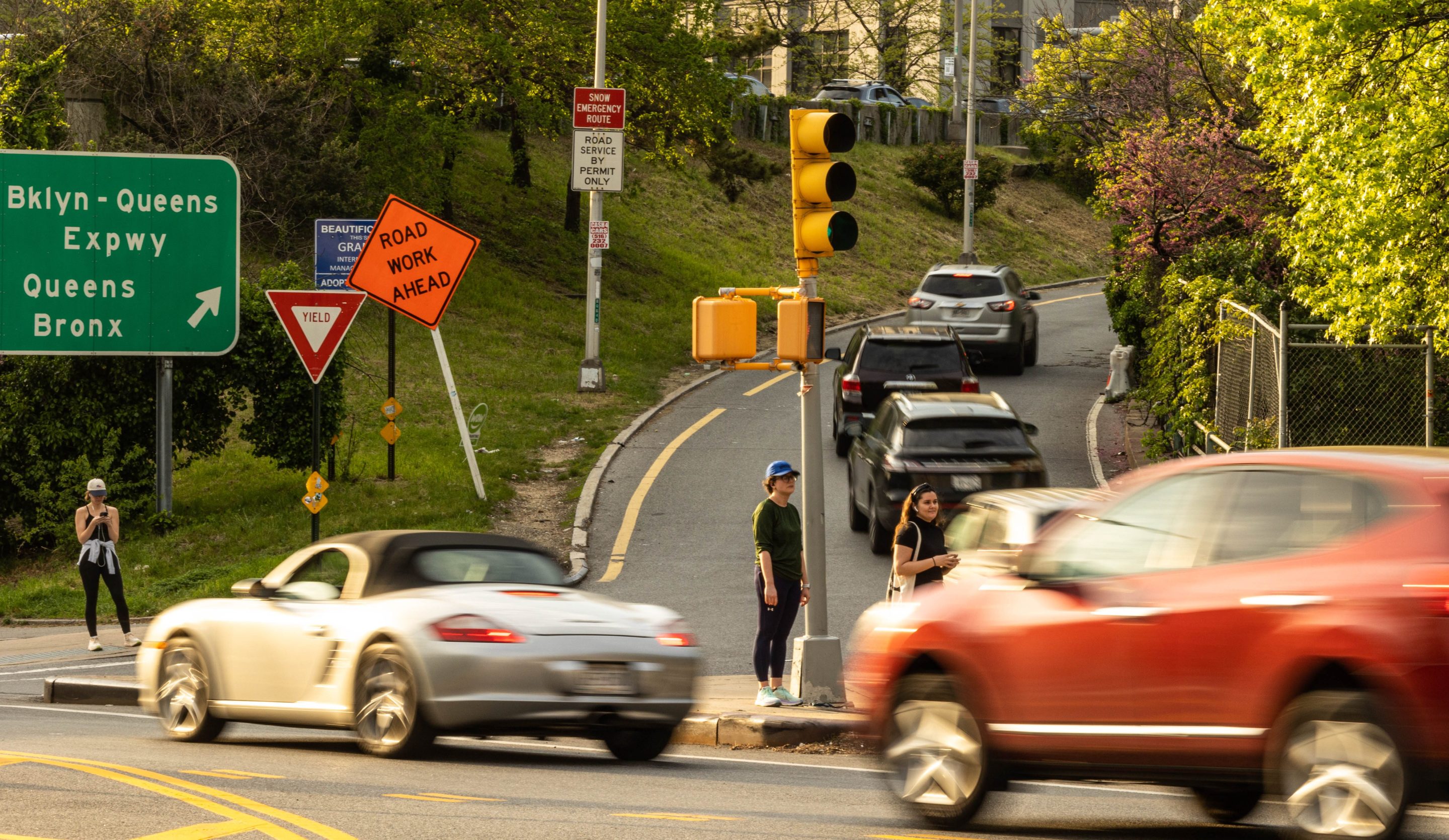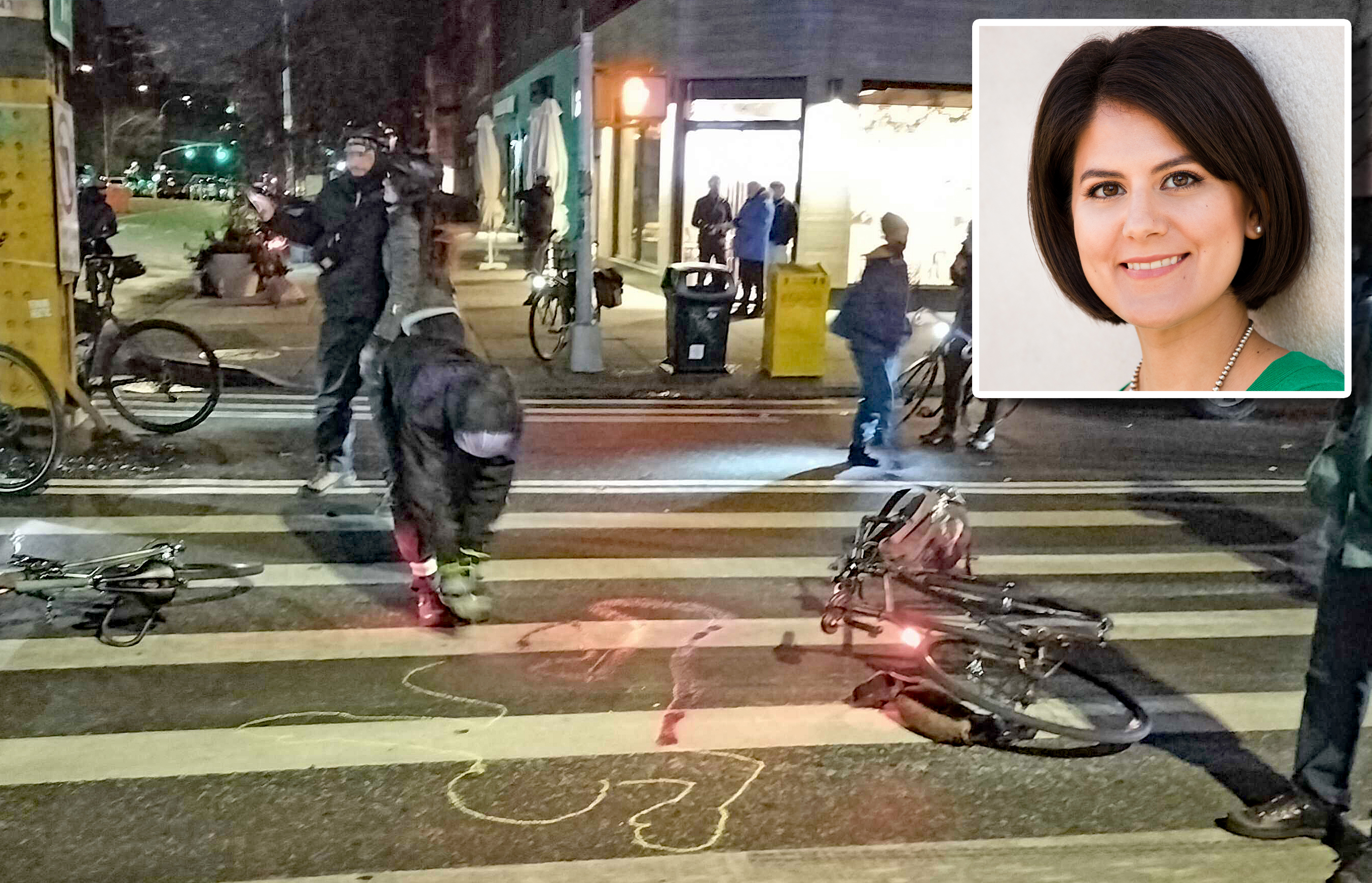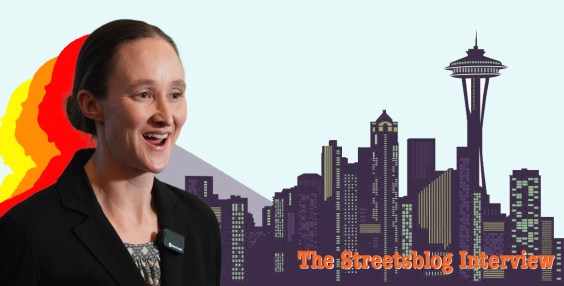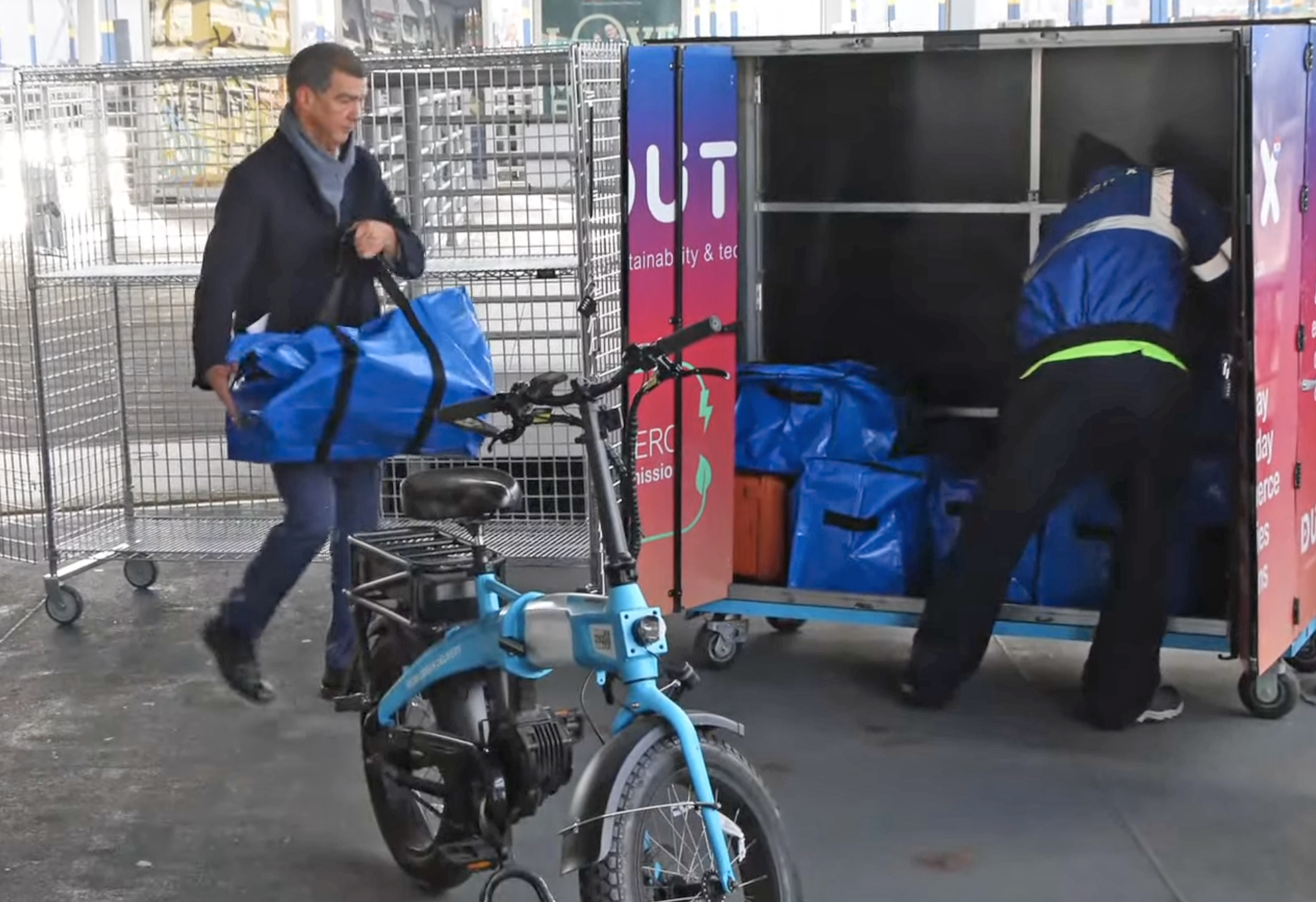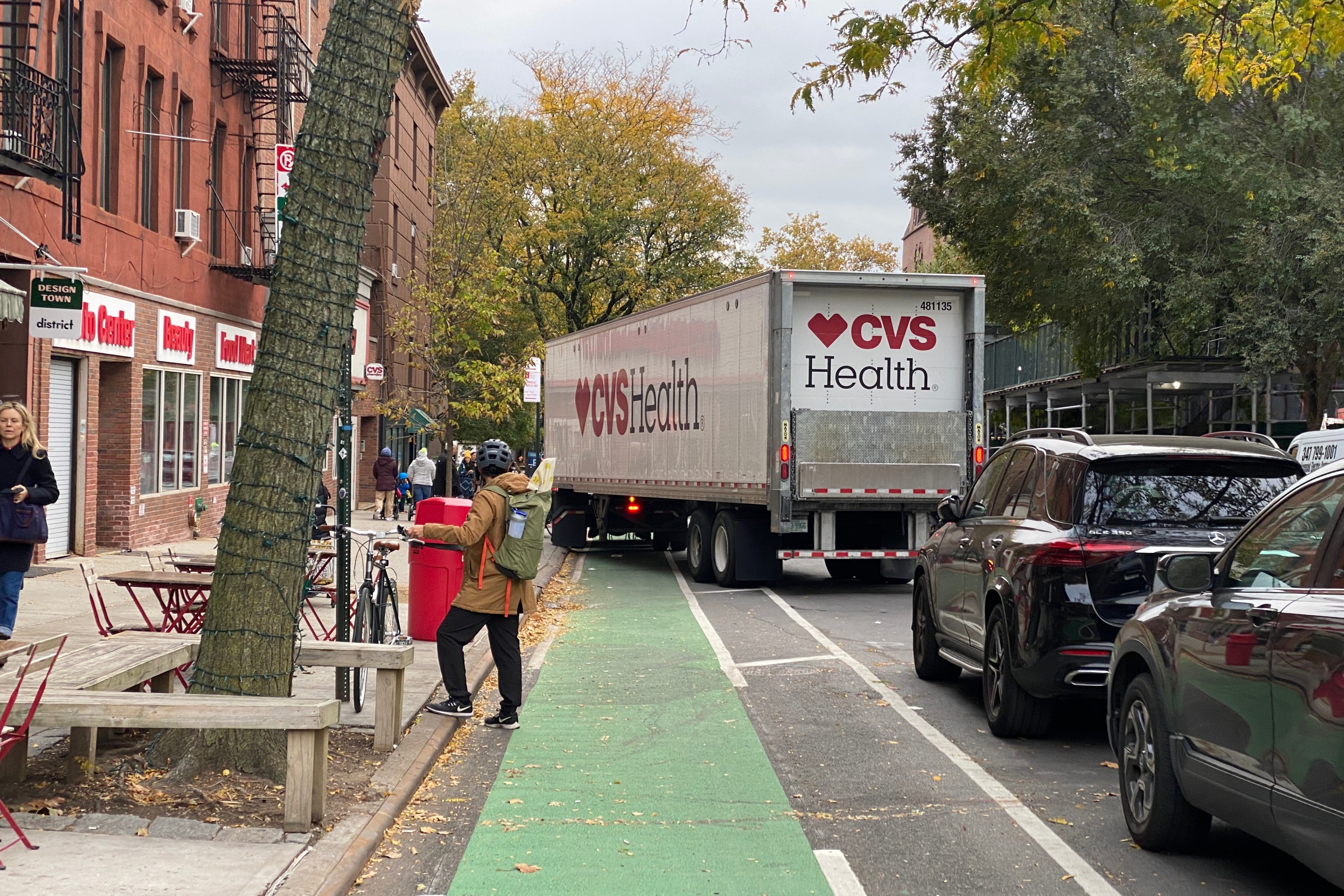The city will study closing a chaotic Atlantic Avenue on-ramp to the Brooklyn-Queens Expressway, the Department of Transportation revealed on Thursday night.
The Queens-bound entrance comprises one of the worst road designs in the city, and DOT will take a look at shuttering access as part of the agency's review of whether to keep the highway at two lanes or rewiden it to three under its upcoming reconstruction of the Moses-era scar.
The change comes after locals last year rejected an agency proposal to build bigger ramps at the Atlantic Avenue interchange as part of the overhaul.
"It was clear in that meeting that the proposed concepts largely did not align with community priorities and we went back to the drawing board. However, it was well received that DOT would study closing the Queens-bound on-ramp at Atlantic Avenue, a request from many community members," the agency's Chief Strategy Officer Julie Bero said at an update meeting about the BQE project in Downtown Brooklyn.
The agency also showed off new renderings for possible plan of the $5-billion rebuild of the deteriorating triple-cantilever, stacking the two decks of the roadway on top of each other and thereby taking up less space, Gothamist first reported. DOT Commissioner Ydanis Rodriguez told the outlet that the agency won't pick a design until after an environmental review.
Experts have long proposed shutting down the Atlantic ramp as a key measure to reducing cut-through traffic on adjacent neighborhood streets, after former Mayor Bill de Blasio reduced the BQE from three lanes in each direction to two three years ago. Bero previously dismissed the idea, arguing trucks from the adjacent Red Hook marine terminals would have to get onto the highway there.
That changed after Mayor Adams announced in May that the city would take over the port at the Brooklyn waterfront from the Port Authority, and come up with a new master plan for the maritime cargo facility, allowing DOT to consider closing the ramp and make other street safety improvements nearby.
"With a large amount of space that's newly available to plan, there's an opportunity to enhance safety and connections for pedestrians and bicyclists as well as improve transportation circulation for the port," Bero said.
In 2021, then-Mayor Bill de Blasio cut the lanes on the 1.5-mile, city-owned section of the BQE between Atlantic Avenue and Sands Street from three lanes each way down to two to lessen the load on the crumbling section wrapping Brooklyn Heights.
Even at two lanes, a new highway would be 20 percent wider than it currently is in order to comply with federal standards. However, if DOT goes for three lanes, the agency could ask Washington, D.C., for an exemption of the regulations to reduce the width of the shoulders, Bero said.
The ramp restriction was a recommendation by the former mayor's expert panel on the BQE from early 2020, which also recommended closing or limiting access to some of the BQE's ramps, particularly at Atlantic Avenue, which the brain trust deemed "one of the worst-designed ramps in New York City."
"Cars and trucks turn from Atlantic Avenue onto a steep rising grade and then encounter a stop sign before merging onto the highway. This poor configuration has made this a high crash location," the experts wrote.
What's more, the area is hostile to anyone not in a car, with pedestrian and bike infrastructure little more than an afterthought in the area — which is a main feeder to Brooklyn Bridge Park. And the constant congestion slows local buses down to a crawl.
Despite the poor setup, some 700 to 800 vehicles an hour use that ramp in the morning rush, and another 500 motorists an hour get on in the evening peak, according to the panel.
The experts argued at the time that the closure would discourage drivers from taking short cuts around the Cobble Hill-Carroll Gardens trenched section of the BQE by cutting through local streets like Hicks Street, Columbia Street, and Clinton Street. But the city didn't implement the ramp restrictions and the spillover traffic on adjacent roads slowed travel speeds by 30 to 50 percent.
DOT will look into the effects of closing the on-ramp as part of its traffic analysis comparing reconstructing the BQE at two lanes or three lanes, which officials plan to complete in the first quarter of next year. Construction on the mega-project is scheduled to start in mid-2029, Transportation officials said.
Since the ramp is part of the interstate highway system, both the State Department of Transportation and the Federal Highway Administration need to green-light its closure, Bero said.
"Typically the federal government requires complete interchanges, which means four on and off ramps," the senior official told reporters. "In order to make a decision about whether one of those can be removed, we have to gather a lot of data, and that's what we're doing with these traffic models."
The area's Council Member welcomed the city agreeing to look into paring back the highway interchange, but urged the Adams administration to do so soon.
"The community wants to see it closed now and I think it would make a big difference in improving safety on Atlantic Avenue and reducing congestion in that area," said Lincoln Restler. "It's a major priority for the communities in Brooklyn Heights and Cobble Hill."
